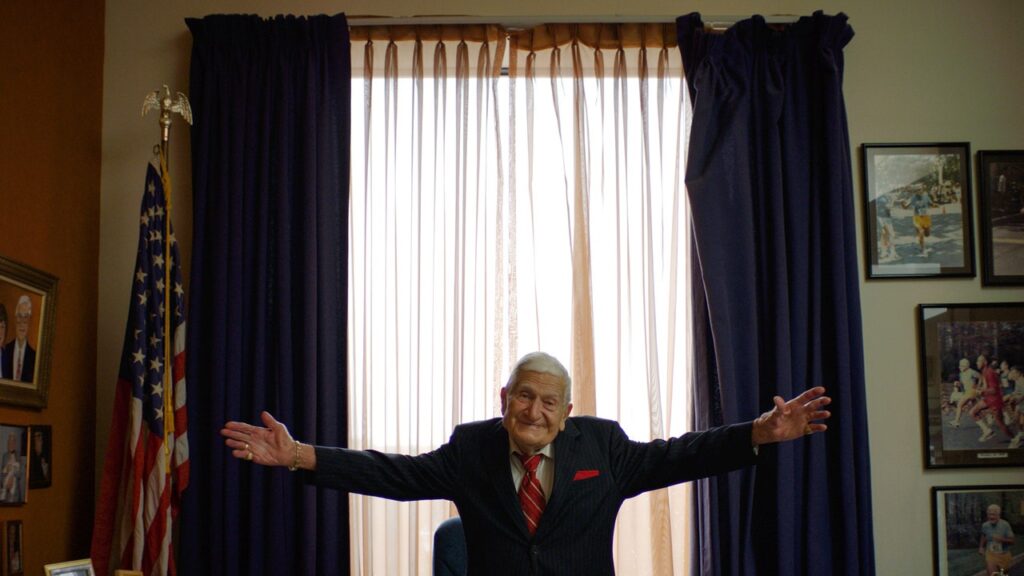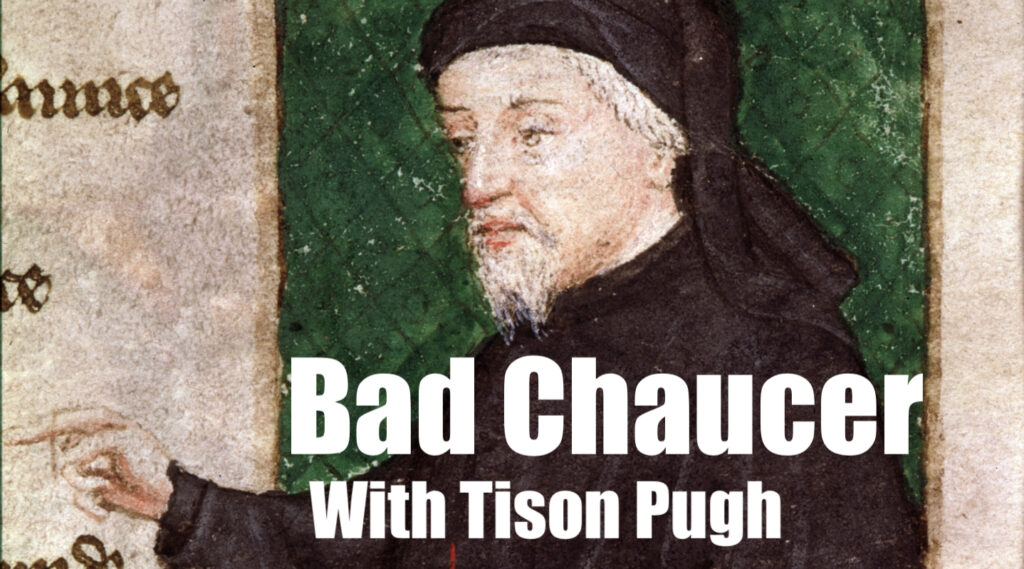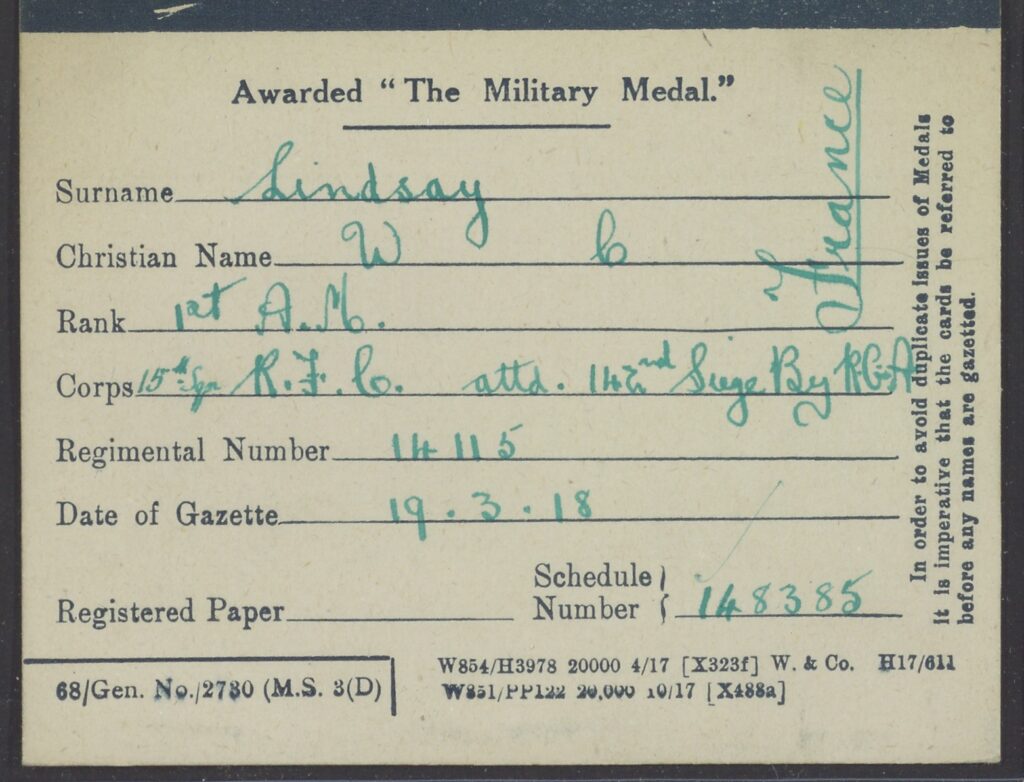“Young man!” a voice shouted down the telephone line. “We’re all different! But we’re all the same. And we’re all God’s children.” Thus began my short, intense friendship with Frank Lucianna, a ninety-nine-year-old attorney, as we followed him on his final criminal trial.
Stepping out of the elevator into Frank’s law offices was to enter a shrine to his seventy-year legal career: framed newspaper clippings (“Retirement? He Objects!”), photographs of long-dead secretaries, and gifts from long-ago clients. Frank was a time capsule: he spontaneously broke into song, belting out nineteen-forties big-band hits; wore a pin-striped suit to work; handed out five-dollar bills to the needy on Main Street; and waited until a female crew member was out of earshot to discuss anything remotely PG-13.
Frank said his life was blessed. In fact, it had nearly ended in 1945, when his B-17 bomber was hit by anti-aircraft fire over Italy. At twenty-two, he was the old man of the crew; he steadied their nerves until they crashed, and then led them to Yugoslavian partisans and safety. Other kids from his Jersey neighborhood weren’t so lucky: thirteen friends never made it home. Anytime I asked about the war, Frank slipped into a quick, low recitation of their names. Frankie Novello, Carl Murray, John Way . . . Each boy was now a bead on a private rosary.
Their stories had ended, but Frank’s went on. He graduated from Fordham Law and began representing indigent Black defendants in Bergen County, because when he hung out his shingle they were some of the only clients he could get. He came to specialize in murder cases with psychological defenses: in 1981, Frank pioneered the “battered woman” defense when he won an acquittal for Dorothy Rapp, a housewife who had killed her abusive husband.
By the end of his life, he was a celebrity to many of his working-class clients and—a function of his longevity—their children and grandchildren. They spotted him from blocks away, his small frame, large head, and shock of white hair. (Frank himself acknowledged his resemblance to the protagonist of the 2009 Pixar film “Up.”)
Despite Frank’s passion for criminal defense, the violence weighed on him. “Some of these cases are so terrible, they’re unimaginable,” he told me, as we stood under the vaulted ceilings of his beloved church. And yet, he saw his role not just as a defense attorney but as a shepherd, guiding broken souls toward redemption. “To unearth the goodness from some of these people who have done wicked things is a tremendous job,” he said. “That’s what the law profession comes down to.” His statement was so powerful that I can now scarcely remember a time when I failed to understand it.
Turnout at funerals tends to dwindle with age, as friends die and social networks dissipate. When Frank died, I allotted twenty minutes to stop by his wake. Instead, I spent two hours in a line that snaked down the block: grateful clients, veterans, prosecutors stymied by his courtroom theatrics, judges swayed by them, and fellow defense attorneys to whom he was an unofficial dean. Many had known him for decades, some for days. I had spent less than a week with Frank in the final year of his life. But length of acquaintance is not always indicative of depth of connection.
It was family, in the end, that Frank cherished the most. On the final shoot day, just six weeks before he died, he said, “Boys!” and waved his hand dismissively. “Forget ’em. Girls! Girls are the best, young man.” Frank and Dolores had three daughters: Diane, Susan, and Nancy. On Sundays after church, other families visited Baumgart’s Café or Howard Johnson’s. For his girls, it was Rahway and Trenton State. They waited in prison parking lots while he went inside to visit clients. The law became a family affair. Diane and Nancy eventually worked alongside him as attorneys, and Susan was a paralegal at his office. Susan died of breast cancer at forty-eight. At day’s end, before driving himself home, Frank put on his coat, gripped a cane, and prayed before her portrait in the lobby.
In success, a documentary short is a Polaroid, a snapshot of time and place. Rather than trying to squeeze the vastness of this extraordinary life into fifteen minutes, we met the man in this moment, as he summoned the strength for one last case. At ninety-nine, he was determined to not just survive but thrive. Laughing, crying, praying, despairing, drinking, hoping, singing, and above all else, living.
Early on in the project, I had told someone at a party about Frank’s never-ending career. “How sad,” she had said, thinking it was tragic that he felt the need to keep working. But Frank had not missed some crucial chapter of life by not decamping to a South Florida shuffleboard court. Nor was he raging against the dying of the light. He was a torch-bearer, protecting a faith in the promise of redemption. He spread that flame right up until the final gavel struck.


